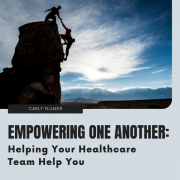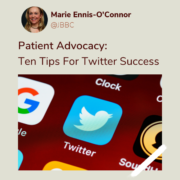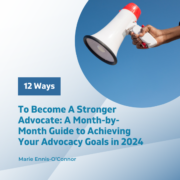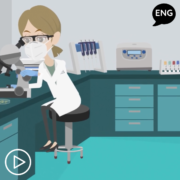Empowering One Another: Helping Your Healthcare Team Help You
Life is all about making choices, and I think the same could be said about cancer in some capacity. If we take the time to think about it, we have choices in:
- What doctor we see for diagnosis and whether we seek a second opinion
- How we’re treated by our doctors and healthcare team
- What type of treatment we receive, if we’re lucky
- How we feel about our diagnosis and perceive our prognosis
- What we do with the information we receive and the knowledge we gain
So you see, it’s all about empowering ourselves and our healthcare team. But how do we go about empowering our healthcare team in the choices we make? Here are ways to try:
- Tell them about your needs, including spiritually, emotionally, physically, and mentally. How can your healthcare team meet these when:
- Explaining your diagnosis and prognosis:
- Do they sugarcoat or “give it to you straight” based on what you told them about how you want to receive the information?
- Do they give all the details or only the “need to know” info?
- Do they communicate with you in a way that you understand?
- Do they give you resources to further educate yourself with?
Choosing your treatment options:
Do they give you choices based only on what they know, or do they take into consideration research that you’ve done on various options, clinical trials, etc?
Do they help with options based on what your insurance covers?
During the treatment process:
- Are they readily available (or at least within 48 hours) to answer questions?
- Do they explain the process as it continues (ie. next steps)?
- Do they check on you to see how you’re doing?
After treatment ends:
- Do they explain next steps?
- How often to get blood work, scans, routine appointments?
- Do they provide a survivorship care plan?
All of this work that we do as patients goes hand in hand with how we want to be treated by our healthcare team. As we empower ourselves, we empower them too, and there’s nothing better than a great team that’s on the same page.
Carly Flumer is a young woman who was diagnosed with stage I papillary thyroid cancer at the age of 27. She recently received her Master’s degree from Boston University in Health Communication and received her Bachelor’s from George Mason University in Health Administration and Policy. While being diagnosed with the “C” word at such a young age was a surprise, as it would be to anyone, she found strength, support, and inspiration in sharing her cancer journey on social media. As a result of her health outcome, she looks to advocate for other cancer patients through education, research, and health literacy.










